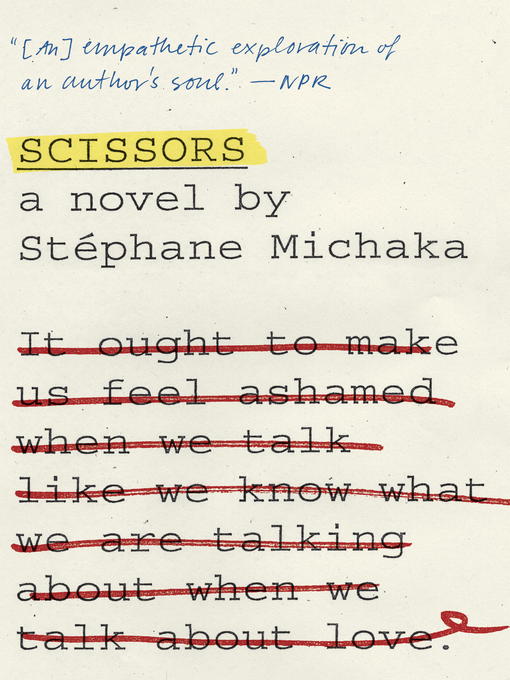Based on the life of the great short-story writer Raymond Carver, particularly his last ten years, Scissors is a funny, compassionate, and convincing portrayal of the creative life: its compulsions, rewards, and frustrations, and its affinities with tragedy.
Raymond is a writer whose life is fraught with personal and creative struggle. His first marriage, to Marianne, is intense, passionate, and unhealthy. After his divorce, he finds new love and support with Joanne, a poet. All the while, Raymond is in an escalating conflict with his editor, Douglas, who both enhances and distorts Raymond's work. As his success and confidence grow, Raymond strives harder and harder to ensure that his stories are published as written, with his past drinking and his previous life with Marianne always lurking in the background. Douglas thinks the stories are as much his as Raymond's and is determined that only his, heavily edited, versions will appear in print. While Raymond considers his stories the most important part of his life, Marianne and Joanne claim stakes in them as well, leading to a dramatic and unexpected final confrontation with the man known as “Scissors.”
In this brilliantly inventive novel, Michaka crafts a searing tale about the struggles and sacrifices one must endure for both love and art.
- Newly Added eBooks
- Most Popular eBooks
- Try Something Different
- Love is in the Air
- Find Your Next Beach Read Here
- Emotional Wellbeing
- See all ebooks collections
- Newly Added Audiobooks
- Most Popular Audiobooks
- Try Something Different
- Best Audiobooks of 2022
- See all audiobooks collections
- Hot Magazines
- Health and Fitness
- Sports
- Food & Wine
- News & Politics
- Celebrity
- March 2022
- See all magazines collections




